Ditapis dengan
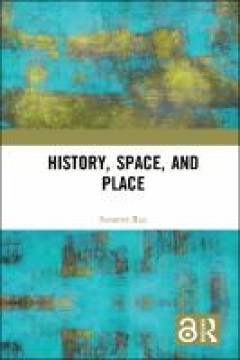
History, Space and Place
Spaces, too, have a history. And history always takes place in spaces. But what do historians mean when they use the word ""spaces""? And how can spaces be historically investigated? Susanne Rau provides a survey of the history of Western concepts of space, opens up interdisciplinary approaches to the phenomenon of space in fields ranging from physics and geography to philosophy and sociology, …
- Edisi
- -
- ISBN/ISSN
- 978-0-429-05638-3
- Deskripsi Fisik
- 233 Hlm.
- Judul Seri
- -
- No. Panggil
- 526 Rau h
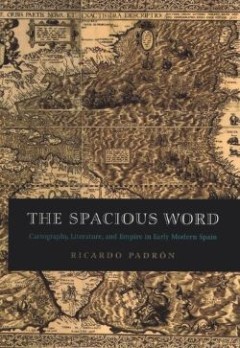
The Spacious Word: Cartography, Literature, and Empire in Early Modern Spain
The Spacious Word explores the history of Iberian expansion into the Americas as seen through maps and cartographic literature, and considers the relationship between early Spanish ideas of the world and the origins of European colonialism. Spanish mapmakers and writers, as Padrón shows, clung to a much older idea of space that was based on the itineraries of travel narratives and medieval nav…
- Edisi
- -
- ISBN/ISSN
- 978-0226821191
- Deskripsi Fisik
- 303 hlm.
- Judul Seri
- -
- No. Panggil
- 526.0946 Pad s
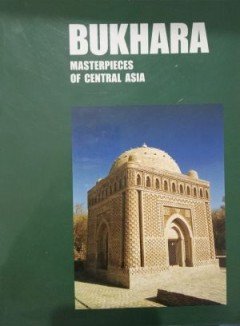
Bukhara : Masterpieces of Central Asia
- Edisi
- -
- ISBN/ISSN
- 978-9943-17-073-5
- Deskripsi Fisik
- 112 hlm.: ilus.; 25,8 cm.
- Judul Seri
- -
- No. Panggil
- 958.7 Ara b
- Edisi
- -
- ISBN/ISSN
- 978-9943-17-073-5
- Deskripsi Fisik
- 112 hlm.: ilus.; 25,8 cm.
- Judul Seri
- -
- No. Panggil
- 958.7 Ara b
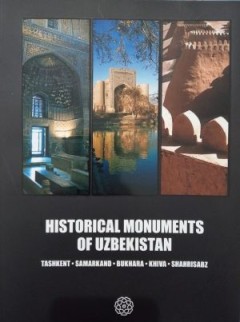
Historical Monuments of Uzbekistan : Tashkent, Samarkand, Bukhara, Khiva, Sha…
- Edisi
- -
- ISBN/ISSN
- 978-9943-17-074-2
- Deskripsi Fisik
- 136 hlm.: ilus.; 25,8 cm.
- Judul Seri
- -
- No. Panggil
- 958.7 Ara h
- Edisi
- -
- ISBN/ISSN
- 978-9943-17-074-2
- Deskripsi Fisik
- 136 hlm.: ilus.; 25,8 cm.
- Judul Seri
- -
- No. Panggil
- 958.7 Ara h
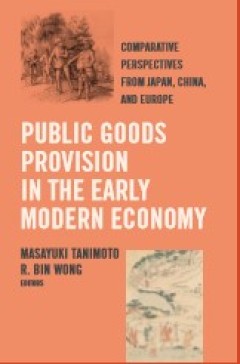
PUBLIC GOODS PROVISION IN THE EARLY MODERN ECONOMY
- Edisi
- -
- ISBN/ISSN
- 9780520972797
- Deskripsi Fisik
- -
- Judul Seri
- -
- No. Panggil
- 330.9 PUB
- Edisi
- -
- ISBN/ISSN
- 9780520972797
- Deskripsi Fisik
- -
- Judul Seri
- -
- No. Panggil
- 330.9 PUB
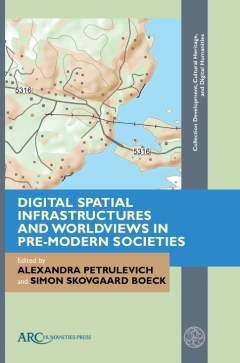
Digital Spatial Infrastructures and Worldviews in Pre-Modern Societies
The study of medieval and early modern geographic space, literary cartography, and spatial thinking at a time of rapid digitization in the Humanities offers new ways to investigate spatial knowledge and world perceptions in pre-modern societies. Digitization of cultural heritage collections, open source databases, and interactive resources utilizing a rich variety of source materials—place na…
- Edisi
- -
- ISBN/ISSN
- 978-1802700794
- Deskripsi Fisik
- 312 hlm.
- Judul Seri
- -
- No. Panggil
- 526 Pet d
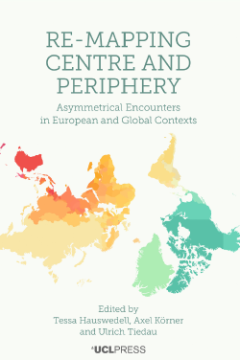
Re-Mapping Centre and Periphery: Asymmetrical Encounters in European and Glob…
Historians often assume a one-directional transmission of knowledge and ideas, leading to the establishment of spatial hierarchies defined as centres and peripheries. In recent decades, transnational and global history have contributed to a more inclusive understanding of intellectual and cultural exchanges that profoundly challenged the ways in which we draw our mental maps. Covering the early…
- Edisi
- -
- ISBN/ISSN
- 978–1-78735–099-1
- Deskripsi Fisik
- 211 hlm.
- Judul Seri
- -
- No. Panggil
- 526 Hau r
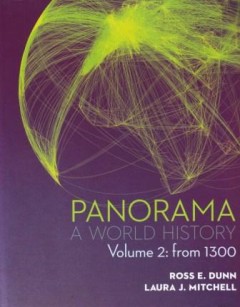
Panorama: A World History Volume 2 : From 1300
- Edisi
- -
- ISBN/ISSN
- 978-0-07-748233-6
- Deskripsi Fisik
- xxxii, 896 hlm.: ilus.; 28 cm.
- Judul Seri
- -
- No. Panggil
- 909
- Edisi
- -
- ISBN/ISSN
- 978-0-07-748233-6
- Deskripsi Fisik
- xxxii, 896 hlm.: ilus.; 28 cm.
- Judul Seri
- -
- No. Panggil
- 909

Destiny Disrupted : a History of the World Through Islamic Eyes
- Edisi
- -
- ISBN/ISSN
- -
- Deskripsi Fisik
- -
- Judul Seri
- -
- No. Panggil
- 909.097671 Ans d
- Edisi
- -
- ISBN/ISSN
- -
- Deskripsi Fisik
- -
- Judul Seri
- -
- No. Panggil
- 909.097671 Ans d
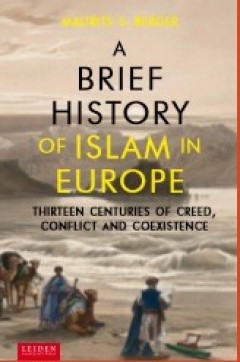
a Brief History of Islam in Europe : a Thirteen Centuries of Creed, Conflict …
- Edisi
- -
- ISBN/ISSN
- 978-94-0060-150-5
- Deskripsi Fisik
- -
- Judul Seri
- -
- No. Panggil
- 909.097671 Ber b
- Edisi
- -
- ISBN/ISSN
- 978-94-0060-150-5
- Deskripsi Fisik
- -
- Judul Seri
- -
- No. Panggil
- 909.097671 Ber b
 Karya Umum
Karya Umum  Filsafat
Filsafat  Agama
Agama  Ilmu-ilmu Sosial
Ilmu-ilmu Sosial  Bahasa
Bahasa  Ilmu-ilmu Murni
Ilmu-ilmu Murni  Ilmu-ilmu Terapan
Ilmu-ilmu Terapan  Kesenian, Hiburan, dan Olahraga
Kesenian, Hiburan, dan Olahraga  Kesusastraan
Kesusastraan  Geografi dan Sejarah
Geografi dan Sejarah